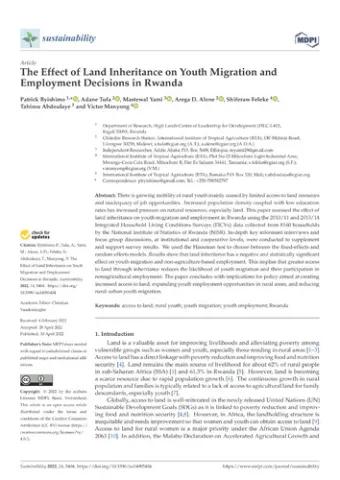The effect of land inheritance on youth migration and employment decisions in Rwanda

Abstract
There is growing mobility of rural youth mainly caused by limited access to land resources and inadequacy of job opportunities. Increased population density coupled with low education rates has increased pressure on natural resources, especially land. This paper assessed the effect of land inheritance on youth migration and employment in Rwanda using the 2010/11 and 2013/14 Integrated Household Living Conditions Surveys (EICVs) data collected from 8160 households by the National Institute of Statistics of Rwanda (NISR). In-depth key informant interviews and focus group discussions, at institutional and cooperative levels, were conducted to supplement and support survey results. We used the Hausman test to choose between the fixed-effects and random-effects models. Results show that land inheritance has a negative and statistically significant effect on youth migration and non-agriculture-based employment. This implies that greater access to land through inheritance reduces the likelihood of youth migration and their participation in nonagricultural employment. The paper concludes with implications for policy aimed at creating increased access to land, expanding youth employment opportunities in rural areas, and reducing rural–urban youth migration.
